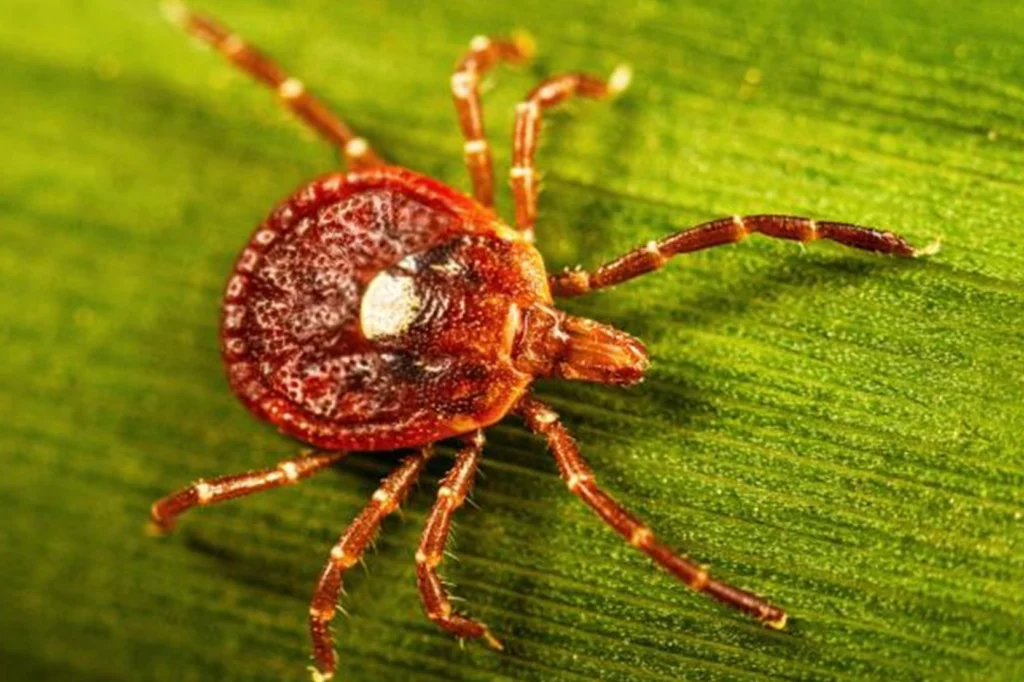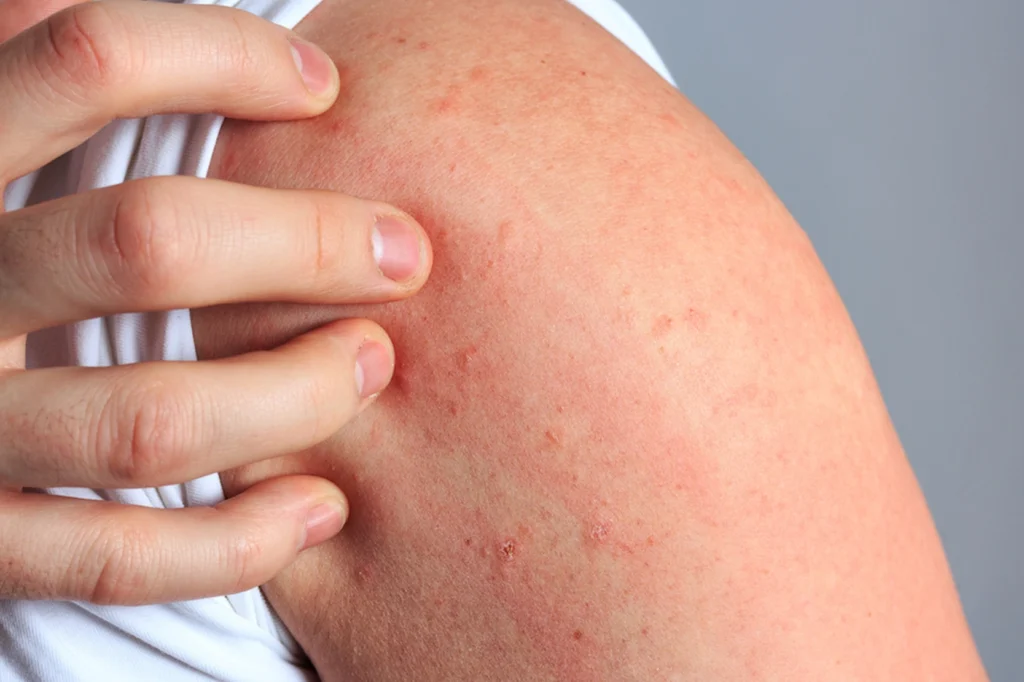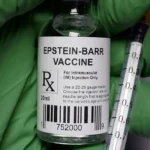Drawing on recent UVA research including the first documented death this post explains diagnosis strategies (blood tests, clinical history), treatment (avoidance and epinephrine), and prevention (tick bite protection). Written with EEAT insight, it empowers readers to recognize risks, manage AGS, and advocate for greater public and medical awareness.
Introduction to A Man Sudden Death Due to Alpha Gal Syndrome:
Alpha gal syndrome (AGS) is a serious, potentially life-threatening allergy to mammalian meat and products, triggered by a tick bite. After being bitten most commonly by the lone star tick your immune system may begin producing IgE antibodies that react to a sugar molecule called galactose-α-1,3-galactose (alpha-gal), found in red meat, dairy, and other mammal-derived substances. This can lead to delayed allergic reactions, sometimes several hours after exposure.
Let me share what I’ve learned (and why it’s so alarming): recently, University of Virginia (UVA) researchers identified the very first recorded death linked to AGS a previously healthy 47-year-old man collapsed after eating a hamburger, and his blood showed a massive allergic reaction. This case highlights that AGS is not just rare; its impact can be fatal, and awareness among doctors and the public is still catching up.
Yes as shown by a recent UVA-linked case, AGS can trigger a fatal anaphylactic reaction in some individuals.
What Is Alpha gal syndrome:
Alpha gal syndrome is not your typical food allergy. It develops after a tick bite (often from the lone star tick), which introduces alpha-gal a sugar molecule found in most non-human mammals into the body.
Over time, your immune system may create IgE antibodies to alpha-gal. Then, when you consume red meat (like beef, pork, lamb) or other mammal-derived products, these antibodies can trigger an allergic response.
What makes AGS especially tricky is the delay: unlike many food allergies that hit you almost immediately, symptoms often appear 2–6 hours (or even more) after exposure.

Why the Recent UVA Discovery Matters:
The UVA case is a grim wake-up call. The man developed an extreme allergic reaction, with his tryptase enzyme level (a marker of allergic activity) spiking to 2000, far beyond what’s typically seen in surviving AGS cases.
Thomas Platts-Mills the very researcher who helped discover alpha-gal called it “catastrophic” and admitted there’s still a lot we don’t understand about how AGS can escalate to something this severe.
Importantly, UVA researchers warn that with the rising tick population, more people may unknowingly be at risk.
Symptoms: What to Watch For:
Alpha-gal reactions vary a lot from mild discomfort to full-blown anaphylaxis. In the UVA fatal case, surprisingly, the man’s symptoms were mostly vomiting and nausea, without a classic rash or breathing trouble which shows how unpredictable AGS can be.
Common symptoms:
- Hives, itchy rash, swelling of lips or face.
- Gastrointestinal issues: stomach pain, nausea, vomiting, diarrhea
- Respiratory problems: wheezing, shortness of breath
- Dizziness or fainting, drop in blood pressure (especially in anaphylaxis)
Diagnosis: How Is AGS Confirmed:
Diagnosing AGS typically involves. Because reactions are delayed, traditional allergy testing (like skin prick) is sometimes less reliable. Experts often rely more on history + IgE test.
- Clinical history: your provider will ask about symptoms, tick exposure, and any reactions after eating mammalian meat.
- Blood test: measuring IgE antibodies specific to alpha-gal helps confirm the allergy.
- Dietary elimination: often, eliminating mammalian meat (and sometimes dairy) helps see if symptoms improve.
Treatment & Management:
There’s no cure yet for Alpha gal syndrome the primary strategy is avoidance.
- Avoid red meat: beef, pork, lamb, venison, and other mammal meats.
- Avoid other alpha-gal sources: some dairy, mammalian-derived medicines, gelatin-based foods or products may also cause reactions.
- For anaphylactic risk: carry an epinephrine auto-injector (EpiPen) if advised by your allergist.
- Monitor: alpha-gal IgE levels may decline over time with strict avoidance.
- Prevent further tick bites: long clothing, insect repellent, tick checks after outdoor activity.
Prevention: Reducing Your Risk:
Prevention plays a big role because tick bites start it all. Here’s what you can do:
- When you’re in tick habitat (wooded areas, tall grass), wear long sleeves, tuck pants into socks, use insect repellent (DEET) on skin and permethrin on clothes.
- Do regular tick checks: scan your body and your pets after being outdoors.
- Shower soon after being outdoors: ticks may take time to attach, so bathing helps remove them.
- If you find a tick, remove it carefully with tweezers, clean the site, and monitor for symptoms.
Why Awareness and Research Need to Grow:
The UVA report is more than just a tragic story it’s a signal that AGS is more dangerous and misunderstood than many realize.
Even among clinicians, awareness is uneven: this delay in symptom onset, the strange triggers (not just food but even animal-based products or grill fumes), and the inconsistent presentation make AGS hard to diagnose.
From a public health perspective, more research is urgently needed: better diagnostic practices, treatment protocols (even immunotherapy?), and broad awareness. As tick populations grow (possibly fueled by climate change), more people may be vulnerable.
Living with Alpha gal syndrome: My Perspective:
If I were someone managing AGS, this is what I’d do (and encourage others):
- Build a support network: talk to an allergist familiar with AGS, join patient groups, and learn from people who live with this every day.
- Be meticulous about food: read ingredient labels, avoid cross-contamination, and stick to a safe diet plan.
- Stay vigilant about tick prevention: it’s not just about avoiding bite once repeat bites may worsen the condition.
- Invest in emergency tools: carry epinephrine, know how to use it, and have a plan.
- Educate others: family, friends, and even your medical providers may not know AGS well. Your voice helps spread life-saving awareness.
FAQ
Most frequent questions and answers
Yes as shown by a recent UVA-linked case, AGS can trigger a fatal anaphylactic reaction in some individuals.
Because alpha-gal reactions are delayed: most people experience allergic symptoms 2–6 hours after consuming mammal-derived foods.
Prevent tick bites by wearing long clothes, using insect repellent, checking for ticks, and removing them promptly.
Conclusion:
Understanding this condition is more important than ever. By recognizing symptoms early, avoiding mammalian products, and protecting yourself from tick bites, you can significantly reduce risks. Alpha gal syndrome is a rapidly emerging allergy that demands awareness, early diagnosis, and strong prevention habits. With tick populations rising and new research including a documented fatal case highlighting its severity, As research grows, staying informed empowers you to manage alpha gal syndrome confidently and protect your long-term health.






